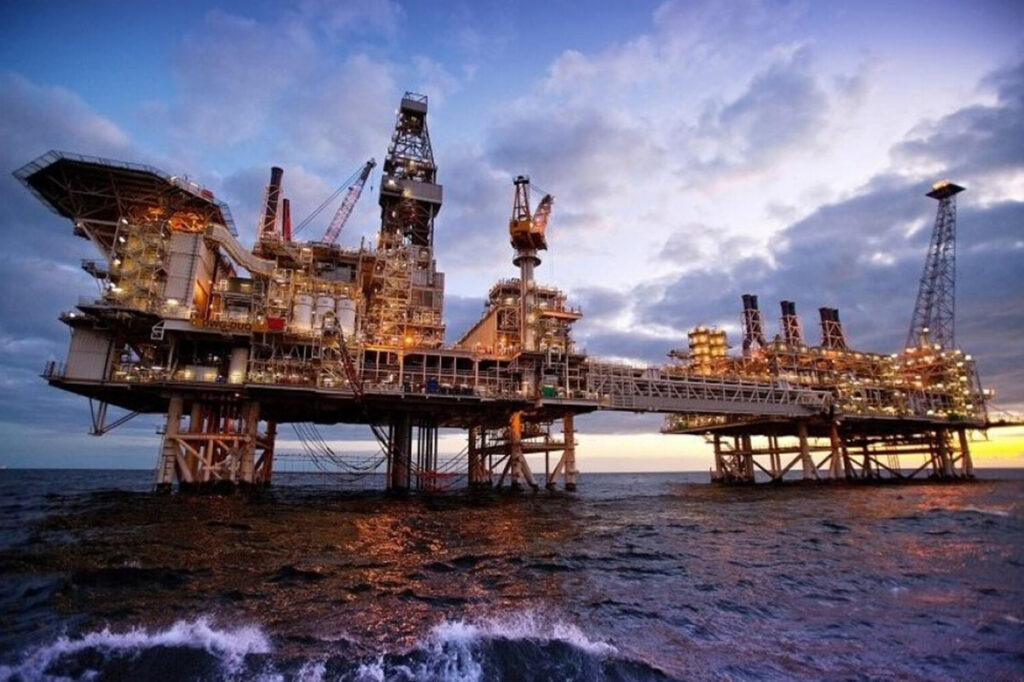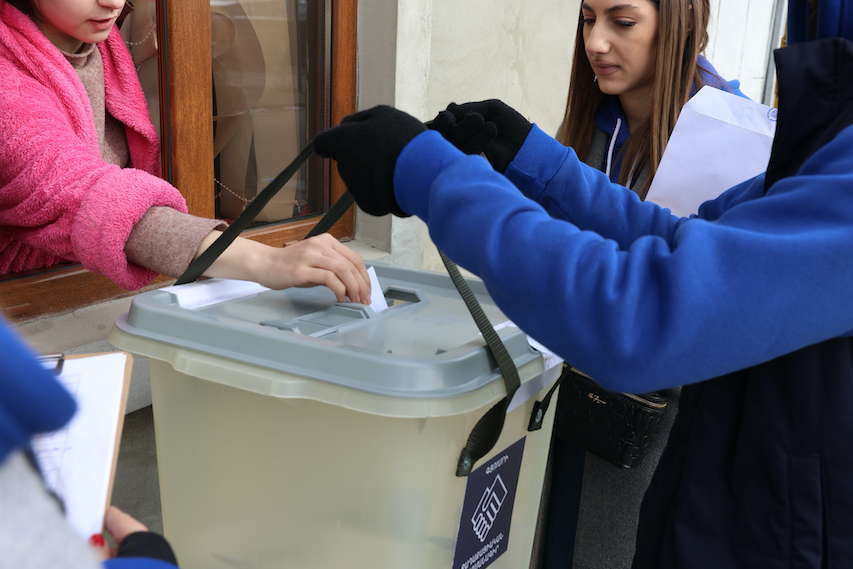Azerbaijan will host the COP29 UN climate summit in a move that activists have warned is a sign of the conference’s move towards fossil-fuel producers and away from effective climate action.
The announcement came after Armenia withdrew its own bid in support of Azerbaijan, as part of a package of ‘confidence-building’ measures announced on 7 December.
UN rules stipulated that the conference would be hosted by a country in eastern Europe, with all countries within that bloc required to support the choice of host. Russia had blocked all EU countries, while Armenia and Azerbaijan had, prior to the announcement, blocked each others’ bids.
The UN climate change summits are a yearly meeting of government, climate, and industry representatives at which governments discuss how to prevent and prepare for climate change.
This year, COP28 was held in Dubai in the United Arab Emirates (UAE), with the chief executive of Dubai’s state-owned oil company appointed the summit’s president. Oil production plays a major role in the economies of both Azerbaijan and the UAE. The BBC cited leaked documents as suggestng the UAE planned to use its role as host to negotiate oil and gas deals.
Critical responses to the choice of Azerbaijan as host country were swift to appear, with a number of leading rights activists condemning the decision on the basis of both Azerbaijan’s human rights abuses and the country’s role as a fossil-fuel producer.
Andrew Stroehlein, European Media and Editorial Director at Human Rights Watch, condemned the decision, stating that ‘putting another rights-abusing petro-autocracy in charge of negotiations addressing the #ClimateCrisis is simply embarrassing’.
Arzu Geybulla, an independent Azerbaijani journalist, wrote that the decision was ‘a gift to the authorities’ amidst their ongoing cracking down on independent media and government critics. She added that the government’s actions were funded by oil and gas revenues.
[Read more: Azerbaijan detains fourth AbzasMedia employee in ongoing crackdown]
Hannah O’Sullivan, an environmental researcher, told OC Media that while fossil-fuel reliant states needed to be a part of the negotiations, COP28 had demonstrated that asking them to host ‘doesn’t work’.
‘Claiming you want the most ambitious language in an agreement whilst inviting thousands of fossil fuel lobbyists to the negotiations is incompatible with the climate action needed on a global level’, said O’Sullivan. ‘Azerbaijan hosting next year doesn’t provide much optimism for COP29 being any different, especially with only 11 months to prepare.’
While COP climate summits end with an agreement being accepted by all participant countries, as of publication, no text had yet been accepted. The texts that have been proposed thus far have been criticised by scientists, climate activists, and countries bearing the brunt of climate change for lacking any commitment to phase out or phase down fossil fuels.
The first draft text, which was rejected on Tuesday, suggested that countries ‘could’ reduce use and production of fossil fuels.
Bill Hare, chief executive of Climate Analytics, described the second draft agreement as ‘a major victory for the oil and gas producing countries and fossil fuel exporters’, according to The Guardian.
'Don’t let the drug dealers preside over the drug withdrawal’, wrote Professor Stefan Rahmsdorf, Head of Earth System Analysis at the Potsdam Institute for Climate Impact Research, while calling for a change to allow the agreements to be accepted by a supermajority, rather than complete consensus.
Green energy in Nagorno-Karabakh and a crackdown on protest
In a speech at the COP28 conference in Dubai on Saturday, Azerbaijan’s Minister of Ecology and Natural Resources, Mukhtar Babayev, said that Azerbaijan was ‘fully committed to contributing to global efforts’ to mitigate climate change.
He added that Azerbaijan aimed to increase the share of electricity generated from renewable sources to 30% by 2030.
Babayev also suggested that Azerbaijan would make ‘the liberated areas’ a ‘carbon neutral zone’ by 2050, referring to areas in and around Nagorno-Karabakh.
He suggested that this would be done through the use of sustainable agriculture, environmentally friendly transport, smart cities, smart villages, and reforestation.
Azerbaijan’s relationship with environmental protesters has been complicated in the past year.
Beginning in December 2022, the government verbally and materially supported self-described eco-protesters who blocked the Lachin corridor, which connected Nagorno-Karabakh to Armenia, for nine months. Several independent Azerbaijani environmental organisations denied any connection to the protests.
[Read more: Opinion | Greenwashing a blockade]
However, protests in June against the reported pollution of lakes in Azerbaijan by mining companies were fiercely suppressed, with protesters beaten and arrested, journalists barred from covering the protests, and Soyudlu village remaining under police blockade almost six months later.
[Listen on OC Media: Podcast | Roadblocks and acid lakes: an Azerbaijani village under siege]
While arrests of protesters are commonplace in Azerbaijan, in recent months at least six independent journalists have been detained, with some warning of a crackdown on independent media.
Zhala Bayramova, a human rights lawyer and the daughter of detained politician and economist Gubad Ibadoghlu, told OC Media that claims made by Azerbaijan’s government regarding both their efforts to combat climate change and their protection of human rights were ‘baseless’.
‘When we look at political prisoners and the inhumane conditions that they are kept in, it is very evident that Azerbaijan’s claims are misleading’, said Bayramova. ‘My father was advocating for the open and accountable management of oil, gas, and mineral resources. He lost his job at the Economic State University for that.’
Bayramova added that Azerbaijan ‘does not even allow anybody to monitor climate change’, or the effects of oil, gas, and mineral extraction.
‘That shows itself in the arrest of environmental defenders like Nazim Bederbeyli, people being threatened with losing their jobs like my father, and also restrictions on people monitoring and filming oil and gas drills’, said Bayramova. She added that the government had recently cracked down on civil society and journalists, ‘so that their false and unbiased claims cannot be disproven’.




 13 December 2023
13 December 2023



